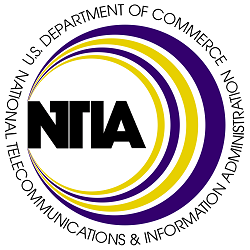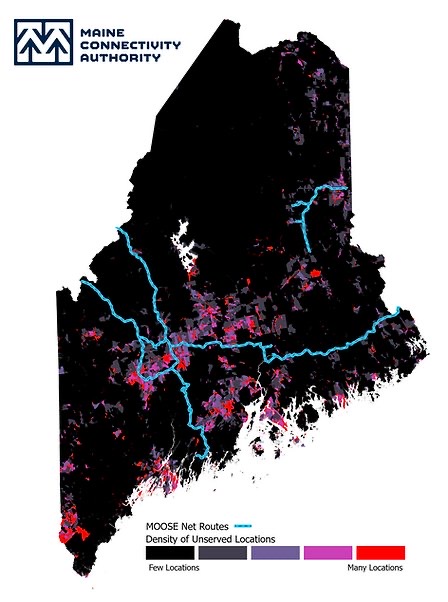The Maine Connectivity Authority (MCA) has chosen Sertex Broadband Solutions to help build and manage a massive portion of the state’s 536-mile Maine Online Optical Statewide Enabling Network (MOOSE Net) middle mile fiber network.
According to the MCA, Sertex will engineer and construct a 450-mile segment of MOOSE NET on the back of a $30 million grant.
The effort is expected to dramatically improve broadband connectivity for 11,000 homes and businesses as well as 200 community anchor institutions, including rural Maine schools, libraries, and healthcare facilities.
The decision comes after the MCA, Maine’s quasi-governmental public agency in charge of broadband expansion and digital equity, issued a request for proposal (RFP) back in late 2024 looking for partners.

“Maine's low population density and rural geography make it difficult to attract the same investment that other states have seen over the past two decades, “ MCA President Andrew Butcher said. “We are excited to work with Sertex with their proven track record of delivering a network of this scale, and one that is so critical for our State. MOOSE Net will ensure that Maine has the broadband infrastructure that communities and businesses need to thrive and grow.”
In partnership with the Maine Department of Transportation and The University of Maine System, MCA secured a $30 million competitive grant from the National Telecommunications Information Administration's (NTIA) Enabling Middle Mile Broadband Infrastructure Program. The MCA middle mile proposal was one of 32 selected from a pool of more than 260 applications submitted to the NTIA.

Like so many states, Maine is dominated by a handful of regional telecom monopolies that see little meaningful incentive to compete on speed, coverage, price, or customer service. As a result, countless Maine locals either can’t access broadband at all, or are subject to sluggish, patchy, expensive cable or DSL access.
Local telecom giants like Charter Communications (Spectrum) have a long history of not just underinvesting in local next-gen broadband access, but actively undermining efforts to boost competition. Such efforts are particularly harmful for more rural communities, which telecom giants both don’t want to serve – but often don’t want anybody else serving either.
The bolstered middle mile network should help reduce costs for last-mile providers looking to extend access to Maine locals long trapped on the wrong side of the digital divide.
“We are honored that MCA has selected Sertex to help build the essential, 21st-century broadband infrastructure that Maine’s residents and businesses need,” Sertex CEO Michael Solitro said of the partnership.
Solitro also pointed to the experience Sertex has in completing similar projects in other states.
“In 2009, through the Broadband Technology Opportunities Program, Sertex led construction of the 350-mile OpenCape network in Eastern Massachusetts. Since then, we have expanded that network to more than 500 miles and have developed additional networks in Falmouth and Hyannis,” he said.
Much of the broadband deployment progress made in Maine in recent years has come courtesy of municipal broadband projects – many of them originating on coastal and long neglected island communities – forced to take their lack of connectivity into their own hands. Such efforts have inspired other, less logistically constrained Maine communities to follow suit.
Inline map of MOOSE Net network courtesy of the Maine Connectivity Authority







